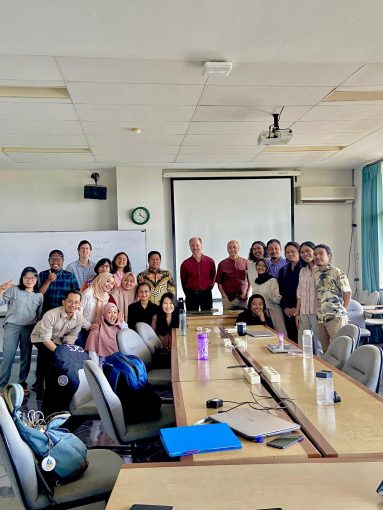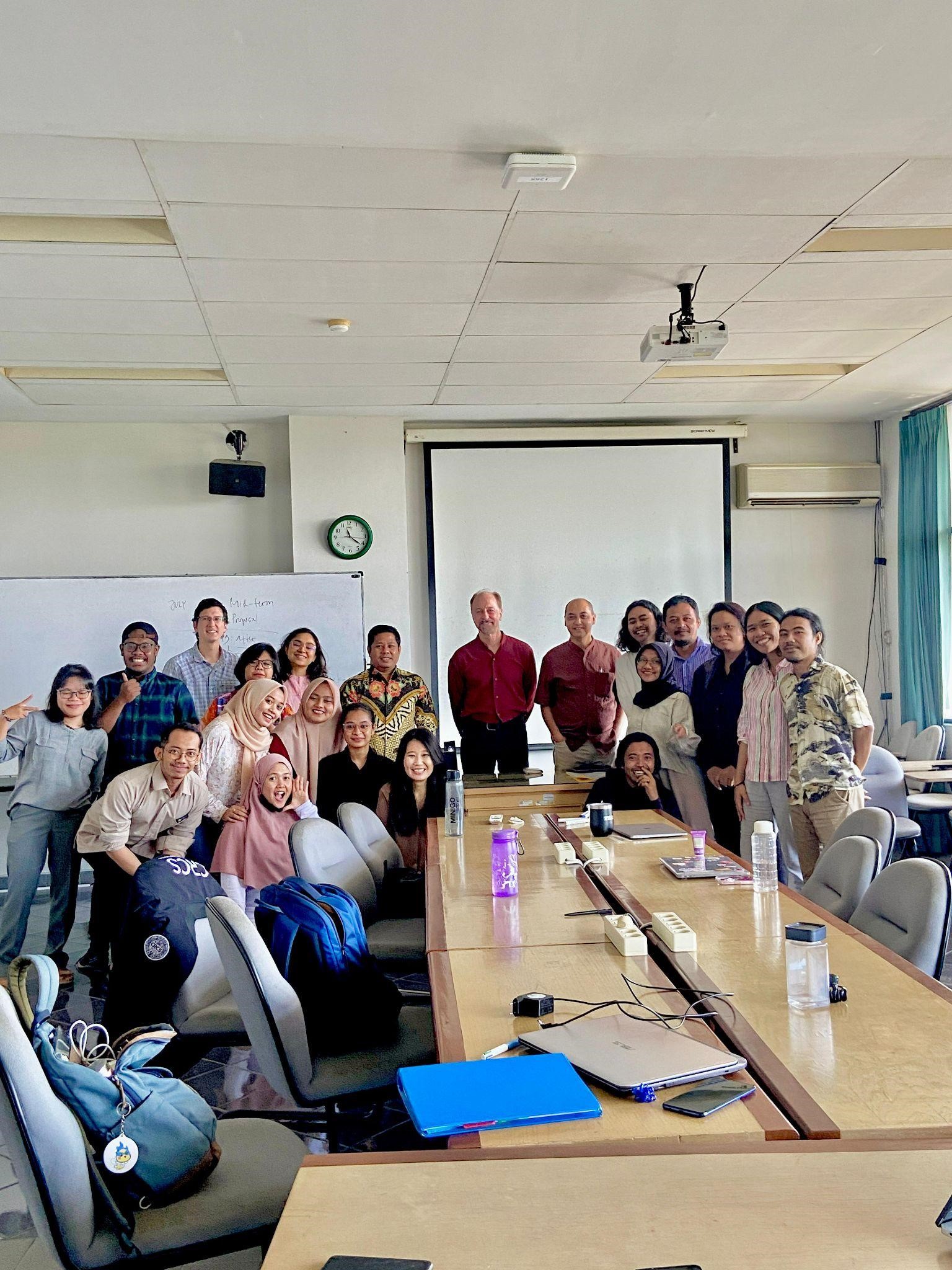

The Intersession Courses organized by the Master’s Program in Religion and Cross-Cultural Studies, or Center for Religious and Cross-Cultural Studies (CRCS), and the Doctoral Program in Inter-Religious Studies (IRS), Graduate School, Universitas Gadjah Mada (UGM) will be conducted from June 10th to July 31st 2024, both online and offline. This event offers elective courses on advanced topics that students can participate in, and is open to participants from outside the programs.
One of the elective courses offered is “Religion and Human Rights,” which is attended by 25 participants. This course is taught by Dr. Zainal Abidin Bagir. “The course mainly discusses the development of Human Rights (HR) in Indonesia and the international arena, and how religion is involved in HR issues. It also explores how HR, originating from the West, integrates into local contexts and interacts with religions in Indonesia, examining whether it is truly universal,” said Dr. Zainal, Chief of the IRS Doctoral Program.
Hanny Nadhirah, a CRCS student from the 2023 batch, explained, “Dr. Zainal always provides a critical perspective on HR discourses. This is different from what I learned before, which tended to view HR as a law or international norm that is taken for granted. By taking this course, I hope to gain direct insights not only from books or previous research but also from field experiences of HR activists.”
In this class, participants are invited to compare HR documents, review the history of the Universal Declaration of Human Rights, and trace the progress and setbacks in HR discussions. There are also guest lectures from critical figures in HR issues, including Robert W. Hefner from Boston University, Lena Larsen from the University of Oslo, and Asfinawati, an HR activist in Indonesia.
“What stood out the most was when we discussed the issue of Vernacularization. This was new to me in class. It was very interesting because we were given the idea of tracing how and in what way the concept transforms from one geographical context to another or is articulated in local areas. This becomes a foundation for me when I want to conduct public education on HR, as these vernacularization examples are very useful for replication,” said Ningsih Sepniar, a CRCS student from the 2023 batch.
During the course, participants engage in discussions related to interpretations, struggles, and practices of HR, leading to new perspectives for critiquing HR issues. “Discussions in class are more critical, examining history, and questioning whether HR can truly be an instrument for achieving justice,” added Ningsih. Before the class begins, participants are provided with readings for discussion. In addition to classroom sessions, participants are also given weekly assignments, mid-term tasks, and a final paper.
Keywords: learning, courses, human rights, SDG 4: Quality Education, SDG 16: Peace, Justice, and Strong Institutions, SDGs
Author: Asti Rahmaningrum
Editor: Linah K Pary
